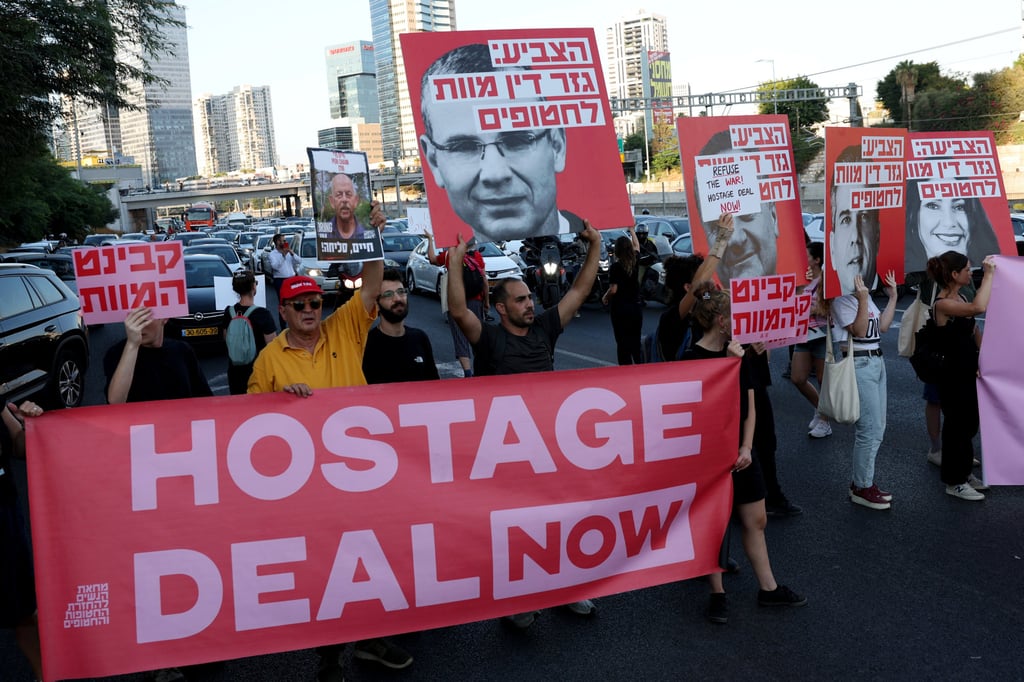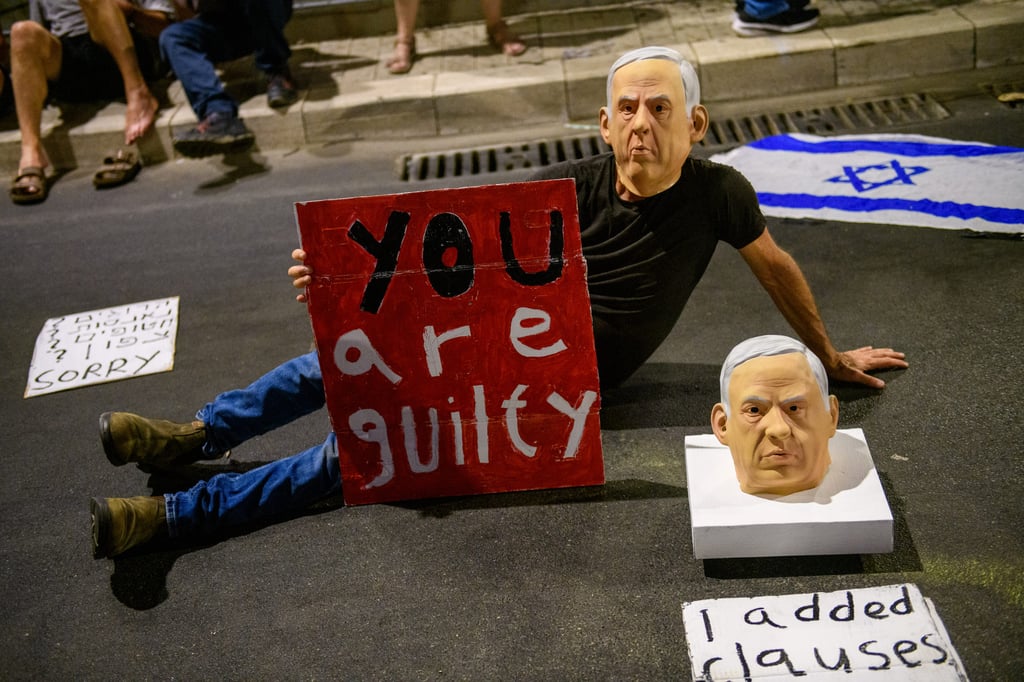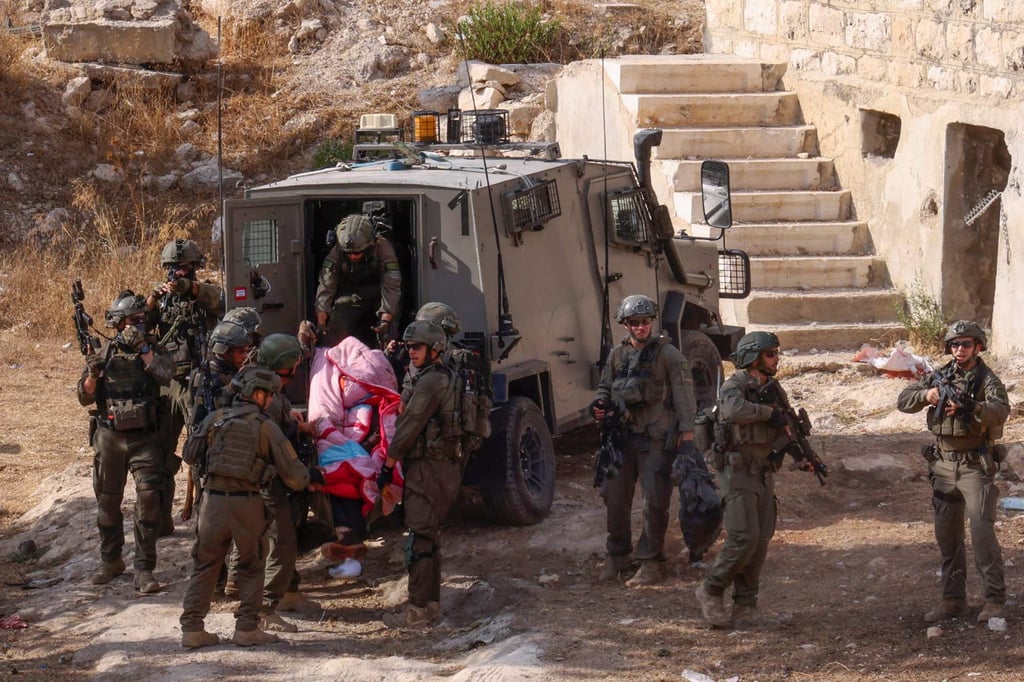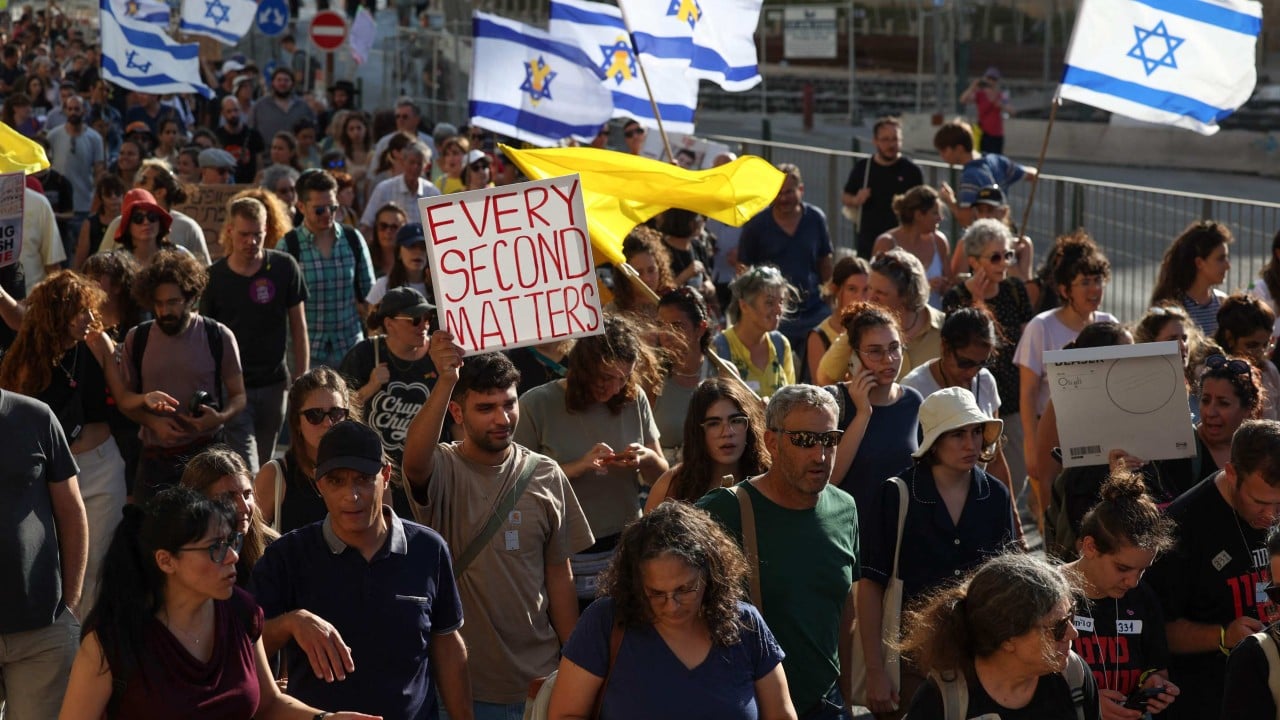Israel’s main union on Sunday ordered a nationwide general strike after soldiers recovered the bodies of six dead hostages from the Gaza Strip where the military is battling Palestinian militants.
The remains of the six were recovered on Saturday “from an underground tunnel in the Rafah area” in southern Gaza, the military said.
They were among 251 hostages seized during Hamas’s October 7 attack on Israel that triggered the ongoing war, 97 of whom remain captive in Gaza including 33 the army says are dead.
Scores were released during a negotiated one-week truce in November, but relatives of those still held believe not enough is being done to free them.
Campaign group the Hostages and Missing Families Forum said a negotiated “deal for the return of the hostages” was urgently needed.
“Were it not for the delays, sabotage and excuses” in months of mediation efforts, the six hostages “would likely still be alive”, a statement said.
The families called for a nationwide general strike to force the government to reach a deal to secure the release of the remaining captives.
Shortly afterwards, the head of Israel’s powerful Histadrut trade union ordered a “complete strike” for Monday in support of the hostages.
“I have come to the conclusion that only our intervention can shake those who need to be shaken,” Histadrut chairman Arnon bar David said in a statement.
“Starting tomorrow at six in the morning, the entire Israeli economy will go on complete strike.”

“A deal is not progressing due to political considerations and this is unacceptable.”
The six hostages were named as Carmel Gat, taken from a kibbutz community near the Gaza border, and Eden Yerushalmi, Almog Sarusi, Ori Danino, US-Israeli Hersh Goldberg-Polin and Russian-Israeli Alexander Lobanov – all seized by Palestinian militants from a music festival.
Military spokesman Daniel Hagari said all six “were abducted alive on the morning of October 7” and “brutally murdered by Hamas terrorists shortly before we reached them”.
Qatar-based Hamas official Izzat al-Rishq said the six were “killed by Zionist (Israeli) bombing”, an accusation the military denied.
A senior Hamas official told journalists on condition of anonymity that “some” of the six had been “approved” for release in a potential hostage-prisoner swap as part of a deal yet to be agreed.
Critics in Israel have accused Prime Minister Benjamin Netanyahu of prolonging the war for political gain.
Netanyahu told Lobanov’s parents on Sunday: “I would like to tell you how much I regret and request forgiveness for not succeeding in bringing Sasha back alive.”
He blamed Hamas leaders “who kill hostages and do not want an agreement”, vowing to “settle the score” with them.
US President Joe Biden said he was “devastated and outraged” by their deaths, but told reporters he was “still optimistic” a truce and hostage release deal could be reached.
The Biden administration has been involved in ceasefire mediation efforts along with Qatar and Egypt.
In the occupied West Bank, as soldiers pressed day five of coordinated raids targeting Palestinian militants, Israeli police said a “shooting attack” killed three officers.

The attack near Hebron added to surging violence in the territory where at least 24 Palestinians, including 14 militant groups said were their members, have been killed by the military since the Israeli raids began on Wednesday.
One 20-year-old soldier was killed on Saturday in the raids, in what Israel’s military has called “counterterrorism” operations.
On Sunday, a “shooting attack” near the Tarqumiya checkpoint in the Hebron area in the southern West Bank killed three police officers.
The military said it “eliminated” the suspected attacker after surrounding a house in Hebron.
In the northern West Bank, a journalist saw Israeli bulldozers in Jenin city centre, a day after an official said soldiers had destroyed most of the streets and power and water had been cut off in the adjacent refugee camp.
Later on Sunday a journalist heard loud explosions near the camp and saw black smoke over the city.
The United Nations said Wednesday that Israeli troops or settlers had killed at least 637 Palestinians in the West Bank since the Gaza war began.
Twenty-three Israelis, including soldiers, have been killed in Palestinian attacks or during army operations over the same period, according to official figures.

In the besieged Gaza Strip, “humanitarian pauses” in the nearly 11-month war between Israel and Hamas were due to take place to facilitate a massive polio vaccination drive which a health official told journalists had begun in earnest on Sunday.
Hamas’s October 7 attack resulted in the deaths of 1,205 people, mostly civilians, according to a tally by journalists based on Israeli official figures.
Israel’s offensive has killed at least 40,738 people in Gaza, according to the Hamas-run territory’s health ministry. The UN rights office says most of the dead are women and children.
The fighting has devastated Gaza, repeatedly displaced most of its 2.4 million people, and triggered a humanitarian crisis. Water, sanitation, and medical facilities have been ravaged, contributing to the spread of preventable disease.
The World Health Organization has said Israel agreed to a series of three-day “humanitarian pauses” to facilitate the vaccination campaign that aims to reach some 640,000 children, after the first confirmed case in Gaza in 25 years.
On Sunday, it was formally launched at three health centres in central Gaza, said Yasser Shaaban, director of Al-Awda hospital.
“We hope this vaccination campaign for children will be calm,” said Shaaban, noting there were “a lot of drones” flying overhead.
Louise Wateridge, a spokeswoman for the UN agency for Palestinian refugees, later said nearly 2,000 children were vaccinated initially on Sunday.
But she added that they were anxious about later: “If the bombing continues after 2:00pm this is of course going to impact the vaccination campaign … The only way to do this is a ceasefire.”
On Sunday, rescuers in the Gaza Strip said Israeli bombardment and an air strike had killed 10 people.


